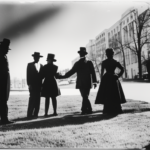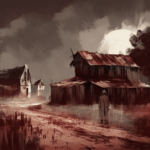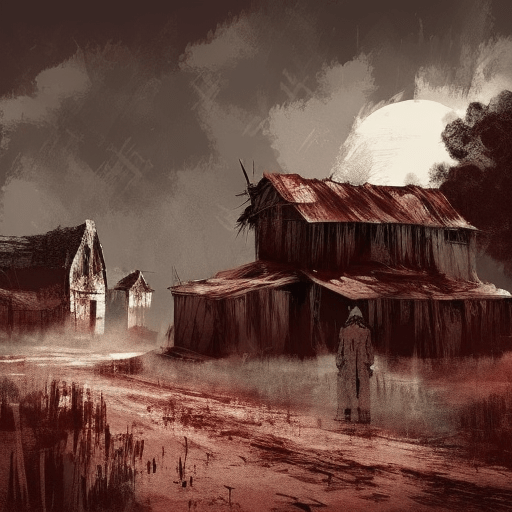One-line Summary:
Tobacco Road is a darkly humorous novel that explores the lives of a poverty-stricken family in rural Georgia during the Great Depression.
Life on Tobacco Road
Tobacco Road, written by Erskine Caldwell and published in 1932, is a controversial novel that offers a gritty portrayal of rural poverty in the American South during the Great Depression. Set in Georgia, the story revolves around the Lester family, who live on a dilapidated farm known as Tobacco Road. The novel delves into the lives of the Lesters, highlighting their struggles, vices, and the harsh realities they face in their day-to-day existence.
The Lester family consists of Jeeter, the patriarch, who is lazy and lacks ambition; Ada, his wife, who is worn out from years of hard work; and their two sons, Dude and Tom. The family’s main source of income is growing tobacco, but due to their incompetence and the declining demand for the crop, their farm is on the verge of collapse.
The Dark Humor of Desperation
Caldwell’s novel is known for its dark humor, which arises from the characters’ absurd and desperate actions. Jeeter, in particular, is portrayed as a comically pathetic figure, constantly scheming and failing to improve his family’s situation. He becomes fixated on the idea of acquiring a car, believing it will solve all their problems. However, his attempts to secure one are met with constant failure and ridicule.
The novel also explores the sexual frustrations and desires of the characters. Jeeter’s wife, Ada, is neglected and yearns for physical affection. She becomes infatuated with Lov, a young man who offers her attention and a temporary escape from her loveless marriage. Meanwhile, Dude, the eldest son, is engaged in a taboo relationship with his sister Pearl, further highlighting the dysfunctional nature of the family.
The Harsh Realities of Poverty
Tobacco Road vividly portrays the dire circumstances faced by the rural poor during the Great Depression. The Lesters live in squalor, with their house falling apart and lacking basic amenities. They struggle to put food on the table and often resort to stealing or scavenging to survive. The novel also explores the impact of poverty on the characters’ physical and mental health, as they suffer from malnutrition and despair.
Caldwell’s portrayal of poverty in Tobacco Road is unflinching and at times shocking. The characters’ desperation leads them to engage in morally questionable acts, such as selling their daughter to a traveling preacher for a small sum of money. The novel challenges societal norms and exposes the harsh realities faced by those living in extreme poverty.
Key Takeaways:
- Tobacco Road offers a darkly humorous portrayal of rural poverty in the American South during the Great Depression.
- The novel explores the lives of the Lester family, who struggle to survive on a dilapidated farm.
- It delves into themes of desperation, sexual frustration, and the impact of poverty on physical and mental health.
- Caldwell’s unflinching portrayal of poverty challenges societal norms and exposes the harsh realities faced by the rural poor.
“They’s a whole lot of things in this world that ain’t never been invented yet.” – Erskine Caldwell
In conclusion, Tobacco Road provides a raw and unfiltered glimpse into the lives of a poverty-stricken family during the Great Depression. Through dark humor and vivid storytelling, Caldwell sheds light on the harsh realities faced by those living in extreme poverty. The novel challenges societal norms and forces readers to confront the uncomfortable truths of the human condition.












